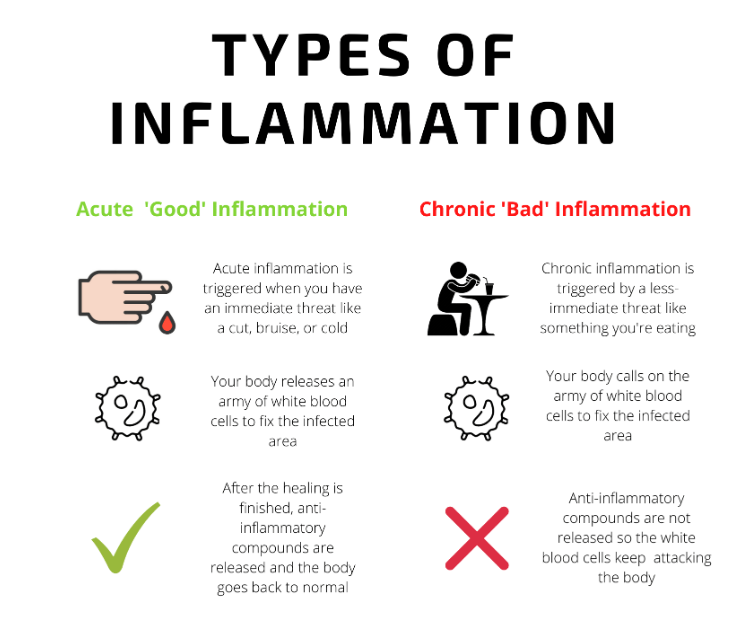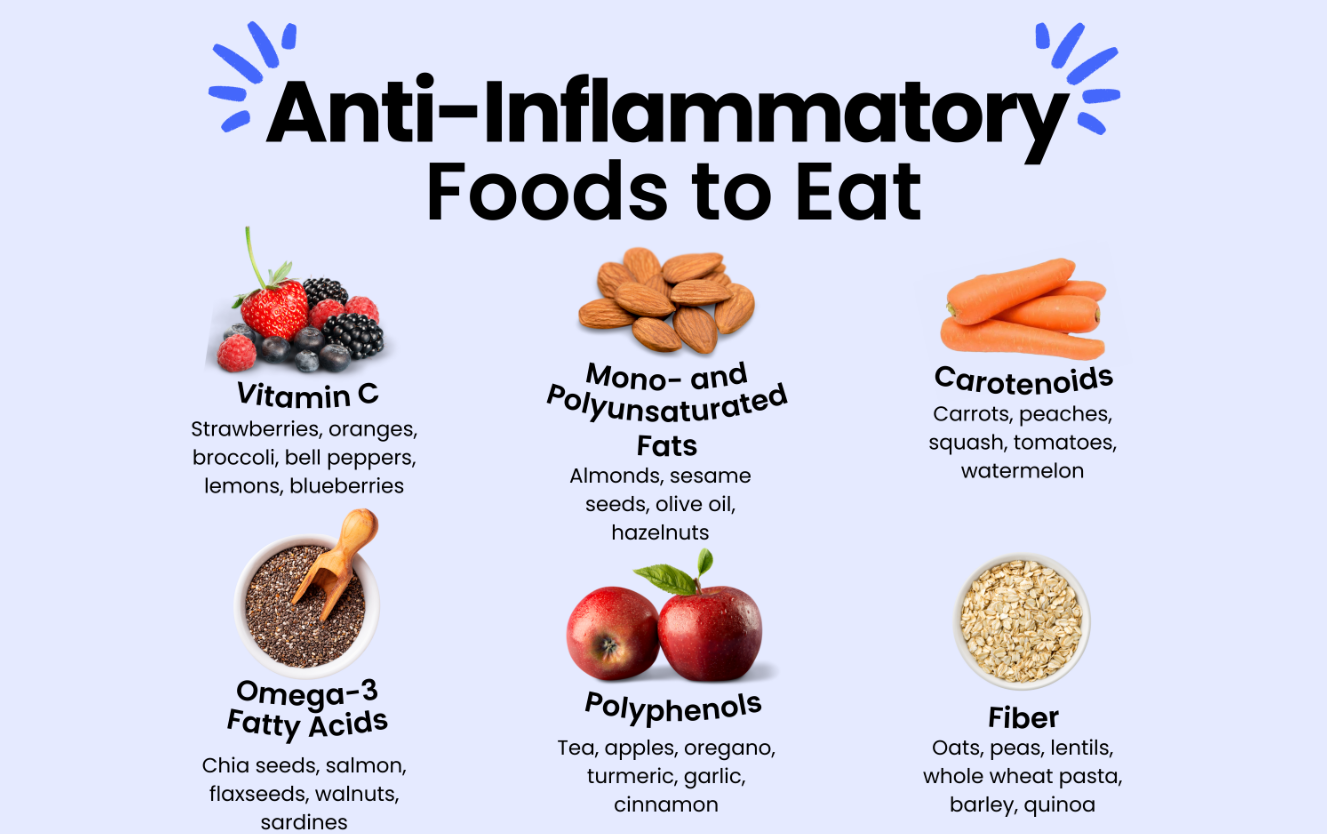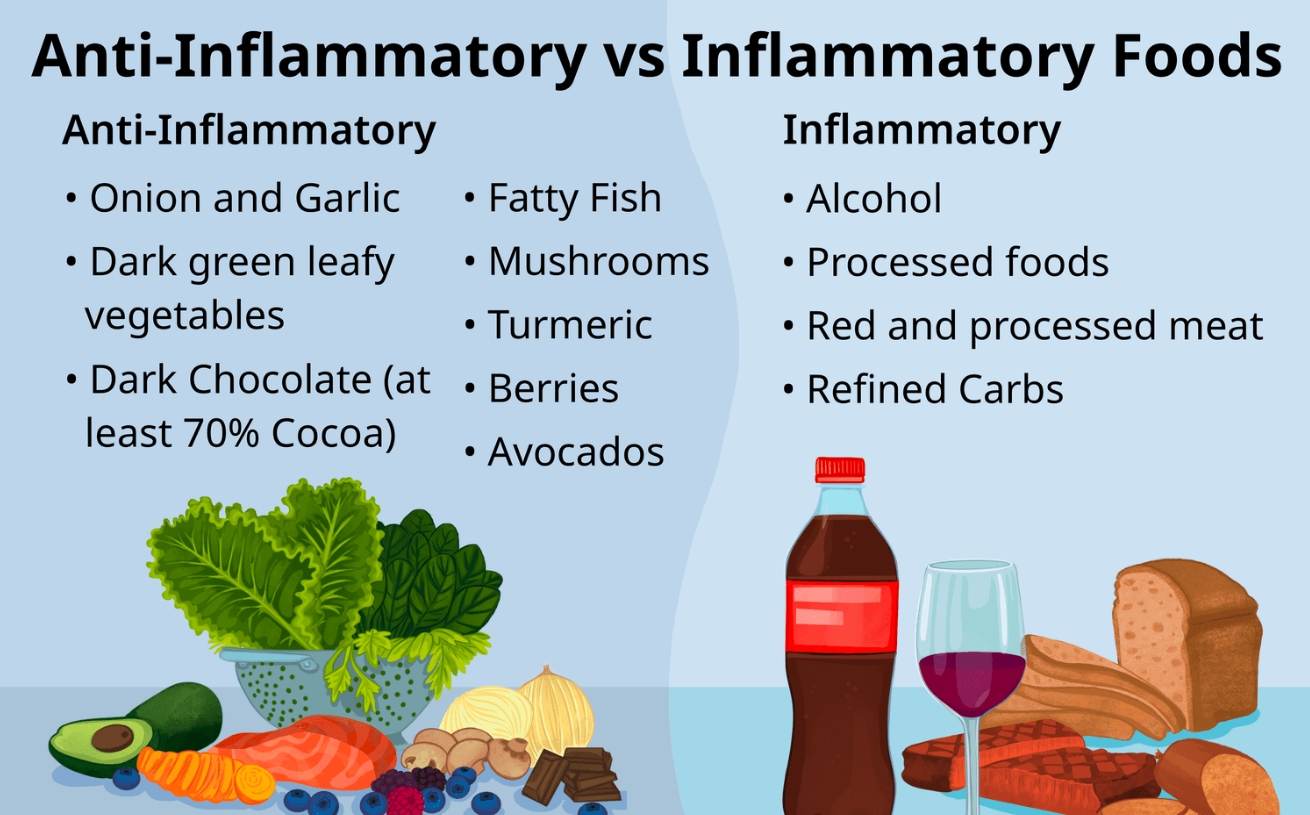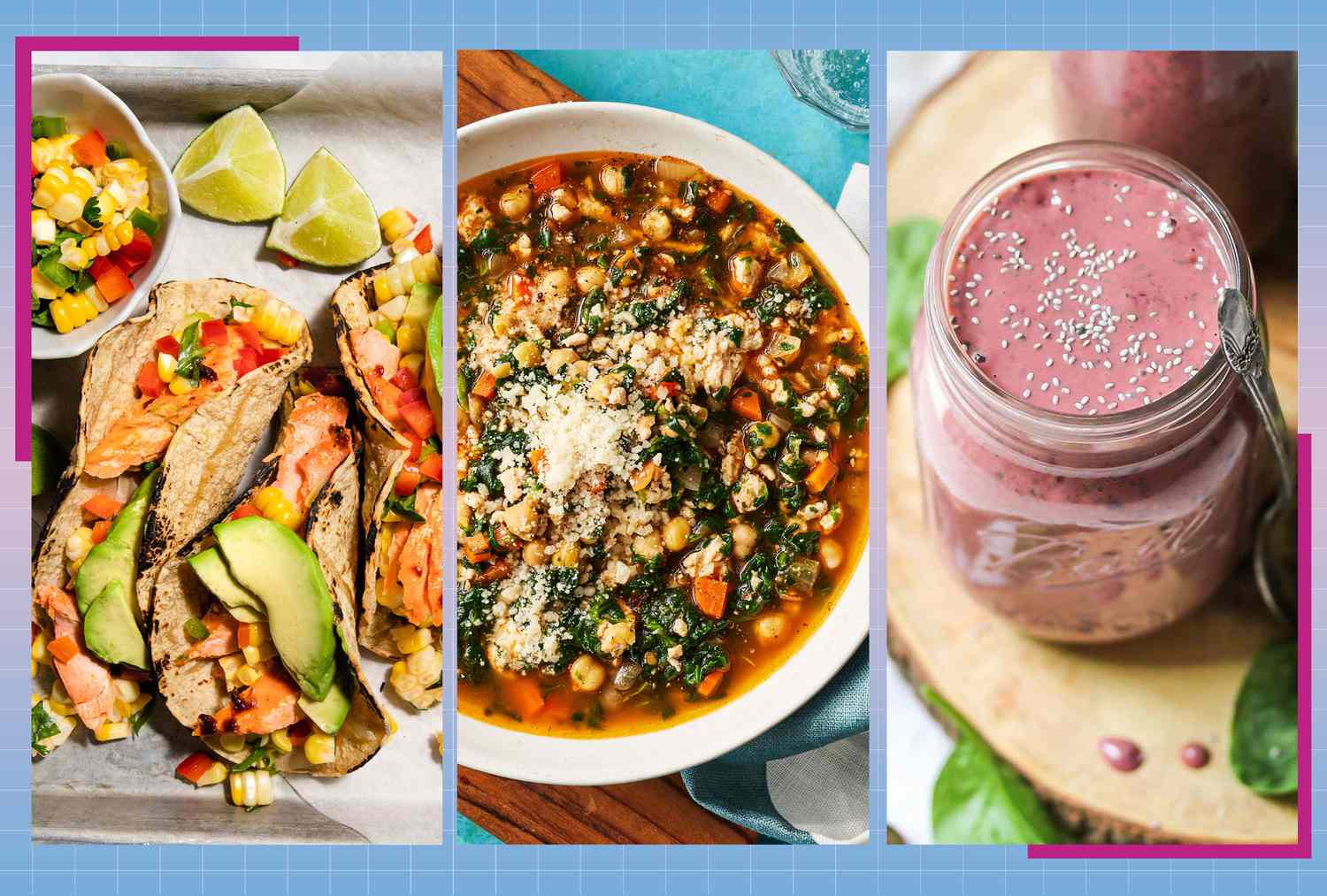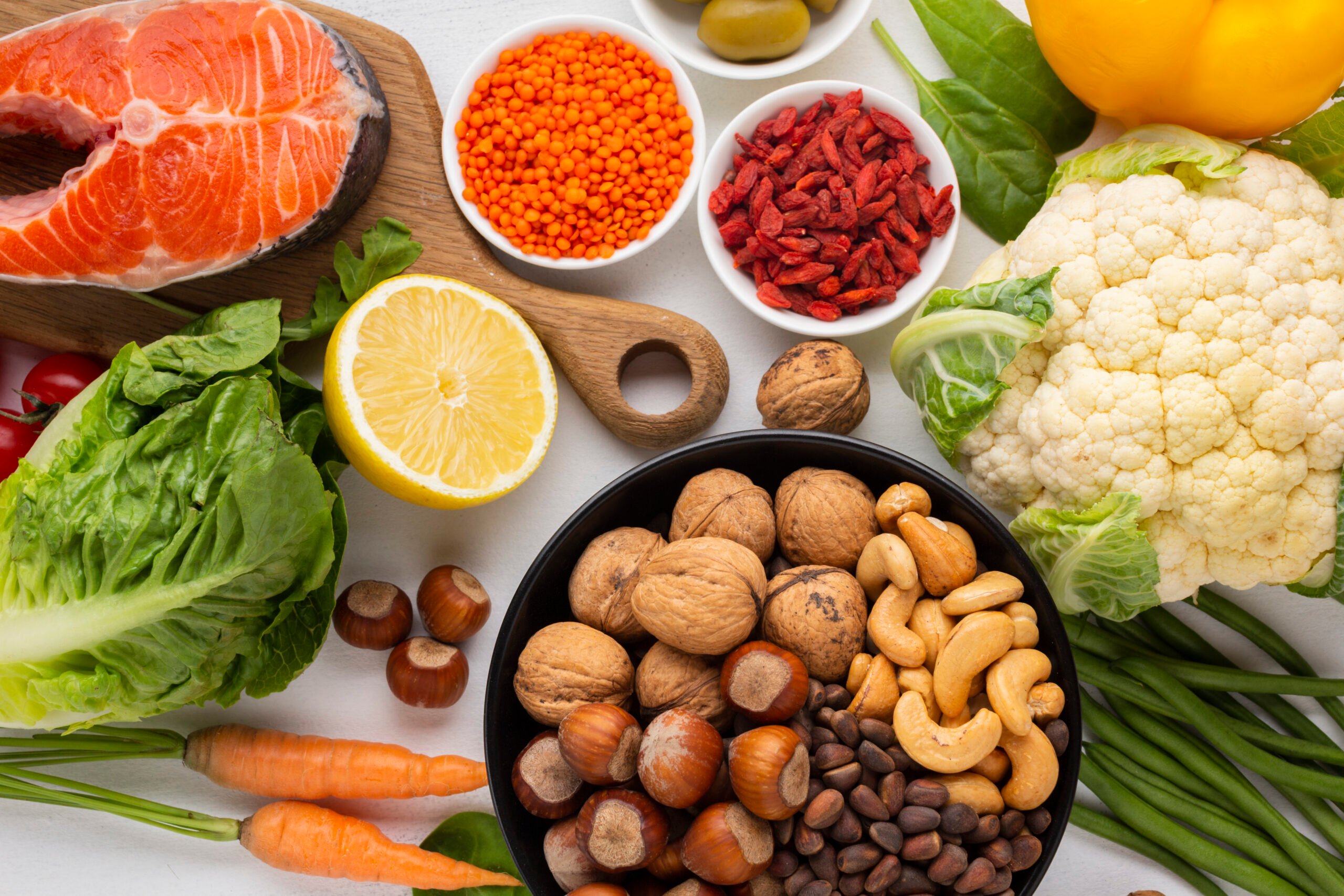
Chronic inflammation is often called a "silent threat," quietly impacting your health over time. Left unchecked, it can damage cells, tissues, and organs, contributing to conditions like heart disease, diabetes, arthritis, and cancer.
But what if your meals could be your medicine? An anti-inflammatory diet can help you combat inflammation, improve energy levels, and reduce your risk of chronic diseases-all through small, consistent changes to the way you eat.
In this guide, you’ll learn everything you need to know about adopting an anti-inflammatory diet, including foods to include, foods to avoid, practical tips, and a detailed meal plan to get started.
What Is Inflammation?
Acute Vs. Chronic Inflammation
Inflammation is your body’s natural defense mechanism. It helps heal injuries and fight infections by causing redness, swelling, and heat in the affected area-a process called acute inflammation.
However, chronic inflammationoccurs when this response lingers unnecessarily, attacking healthy tissues and contributing to long-term health issues like:
- Heart disease.
- Type 2 diabetes.
- Arthritis.
- Inflammatory bowel disease (IBD).
- Alzheimer’s disease.
What Causes Chronic Inflammation?
Several lifestyle and environmental factors contribute to chronic inflammation, including:
- Diets high in processed foods and added sugars.
- Exposure to toxins or pollutants.
- Chronic stress.
- Sedentary behavior.
- Lack of quality sleep.
Signs Of Chronic Inflammation:
- Persistent fatigue.
- Digestive issues.
- Unexplained joint pain or stiffness.
- Skin problems like acne or eczema.
Reducing inflammation starts with addressing these root causes, and diet plays a central role.
What Is An Anti-inflammatory Diet?
An anti-inflammatory dietis not a rigid regimen but a sustainable eating style focused on whole, nutrient-dense foodsthat reduce inflammation. By minimizing foods that promote inflammation and prioritizing those that combat it, this approach supports long-term health.
The Role Of Antioxidants And Free Radicals
Free radicals are unstable molecules naturally produced in the body, but when they accumulate, they cause oxidative stress, a major contributor to inflammation.
Antioxidants-found in fruits, vegetables, and teas-neutralize free radicals, protecting cells and reducing inflammation.
Examples Of Anti-inflammatory Diets
Many popular eating styles align with anti-inflammatory principles, including:
- The Mediterranean Diet:Emphasizes healthy fats, whole grains, and fresh produce.
- The DASH Diet:Reduces inflammation markers like IL-6 and promotes heart health.
- Vegetarian Diets:Often lower in saturated fats and include diverse plant-based options.
Key Benefits Of An Anti-inflammatory Diet
1. Reduced Risk Of Chronic Diseases
Studies show that following an anti-inflammatory diet reduces the risk of cardiovascular disease, type 2 diabetes, and even certain cancers.
2. Improved Gut Health
Fiber-rich foodslike whole grains and vegetables nourish the gut microbiome, helping to regulate inflammation at its source.
3. Better Blood Markers
Anti-inflammatory diets lower markers like C-reactive protein (CRP), which are linked to chronic inflammation.
4. Increased Energy And Mental Clarity
Whole, unprocessed foods stabilize blood sugar levels and provide sustained energy.
5. Enhanced Overall Well-being
When paired with regular exercise, stress management, and good sleep hygiene, this diet promotes a holistic sense of wellness.
Foods To Include In An Anti-inflammatory Diet
Here are the staples of an anti-inflammatory diet and their key benefits:
1. Fruits And Vegetables
- Examples: Blueberries, kale, broccoli, spinach, bell peppers, pomegranates.
- Why: Packed with antioxidants like vitamin C and polyphenols, which reduce inflammation.
2. Healthy Fats
- Examples: Extra virgin olive oil, avocados, walnuts, flaxseeds.
- Why: Contain monounsaturated fats and omega-3s, proven to combat inflammation.
3. Protein Sources
- Examples: Fatty fish (salmon, sardines), beans, lentils.
- Why: Rich in omega-3s and plant-based proteins that reduce inflammatory markers.
Related: 40 Best High-Protein Vegetarian Meals For Healthy Living
4. Whole Grains
- Examples: Quinoa, oats, brown rice.
- Why: High in fiber, stabilizing blood sugar and reducing gut inflammation.
5. Spices And Herbs
- Examples: Turmeric, ginger, cinnamon, fenugreek.
- Why: Contain bioactive compounds that actively reduce inflammation.
6. Additional Items
- Examples: Dark chocolate (80% cocoa or more), green tea, red wine (in moderation).
- Why: These contain polyphenols and flavonoids, which have anti-inflammatory effects.
Foods To Avoid Or Limit
Some foods actively promote inflammation and should be minimized or eliminated:
| Avoid These Foods | Why They’re Harmful |
| Sugary Drinks & Desserts | Spike insulin levels and cause inflammation. |
| Refined Carbs | Found in white bread, pasta; disrupts blood sugar. |
| Processed Meats | Sausages, bacon; high in saturated fats. |
| Trans Fats | In fast food, margarine; linked to increased CRP. |
| Excess Alcohol | Damages gut lining, increasing inflammation. |
Supplements And Drinks To Complement An Anti-inflammatory Diet
Supplements
While food should be the primary source of nutrients, supplements can enhance anti-inflammatory efforts:
- Fish Oil:High in omega-3 fatty acids, which reduce inflammatory proteins.
- Curcumin:The active compound in turmeric with powerful anti-inflammatory properties.
- Probiotics:Support gut health and reduce inflammation at the source.
Anti-inflammatory Drinks
Incorporate these beverages to boost your diet:
- Green Tea:Rich in polyphenols and antioxidants.
- Turmeric Tonic:A simple blend of turmeric, ginger, and lemon juice in warm water.
- Berry Smoothies:Packed with antioxidants and fiber.
- Bone Broth:Provides collagen and amino acids that may reduce inflammation.
Practical Tips For Adopting An Anti-inflammatory Diet
Making significant dietary changes can feel overwhelming, but small, consistent steps can make the process easier. Here are practical strategies to help you get started:
1. Gradual Changes
Start by swapping one inflammatory food for an anti-inflammatory option daily.
Example: Replace sugary sodas with sparkling water infused with lemon or berries.
2. Choose Healthier Cooking Methods
- Opt for steaming, baking, or stir-frying instead of grilling or deep-frying.
- Avoid using heavy sauces with added sugar or trans fats; instead, season with herbs and spices like turmeric and ginger.
3. Plan And Prep Ahead
- Batch-cook meals and snacks over the weekend to avoid reaching for processed foods during the week.
- Keep your pantry stocked with anti-inflammatory staples like olive oil, quinoa, and canned beans.
4. Read Labels
Look out for hidden sugars and unhealthy fats, often labeled as “high-fructose corn syrup” or “partially hydrogenated oils.”
5. Focus On Variety
Aim to eat a rainbow of fruits and vegetables every day to maximize your intake of diverse nutrients and antioxidants.
Sample 7-Day Anti-inflammatory Meal Plan
Day 1
- Breakfast:3-egg omelet with kale and mushrooms, 1 cup of cherries, green tea.
- Lunch:Grilled salmon on a bed of mixed greens with olive oil and vinegar, 1 cup of raspberries topped with plain Greek yogurt and pecans.
- Snack:Bell pepper strips with guacamole.
- Dinner:Chicken curry with sweet potatoes, broccoli, and cauliflower; 5 oz of red wine; 1 ounce of dark chocolate (80% cocoa or higher).
Day 2
- Breakfast:Avocado toast on whole-grain bread, green smoothie with spinach, banana, and almond milk.
- Lunch:Lentil soup with turmeric and a side salad of arugula, cherry tomatoes, and olive oil.
- Snack:Apple slices with almond butter.
- Dinner:Grilled trout with steamed asparagus and quinoa; chamomile tea.
Day 3
- Breakfast:Smoothie bowl with mixed berries, flaxseeds, and unsweetened almond milk.
- Lunch:Quinoa salad with roasted vegetables and chickpeas, a drizzle of tahini dressing.
- Snack:A handful of walnuts or almonds.
- Dinner:Baked chicken breast with turmeric rice and sautéed spinach; green tea.
Day 4-7 Highlights
- Day 4:Breakfast: Greek yogurt with walnuts and pomegranate seeds. Dinner: Baked trout with sweet potato wedges.
- Day 5:Lunch: Farro salad with roasted vegetables and olive oil. Dinner: Lentil curry with cauliflower rice.
- Day 6:Breakfast: Avocado toast with egg. Dinner: Miso soup with tofu and bok choy.
- Day 7:Lunch: Chickpea-stuffed bell peppers. Dinner: Herb-crusted salmon with wild rice.
Conditions That May Benefit From An Anti-inflammatory Diet
Chronic inflammation is linked to a variety of health conditions. An anti-inflammatory diet can play a key role in managing symptoms and reducing disease risks for the following:
- Autoimmune Diseases:Rheumatoid arthritis, lupus, and psoriasis can improve with reduced inflammation.
- Gut Disorders:Crohn’s disease, colitis, and inflammatory bowel disease (IBD) are highly responsive to dietary changes.
- Metabolic Disorders:Type 2 diabetes, obesity, and high cholesterol can benefit from improved blood sugar and lipid control.
- Cardiovascular Health:Reduces inflammatory markers that contribute to heart disease.
- Neurological Conditions:Alzheimer’s and other cognitive disorders have been linked to inflammation.
Common Mistakes To Avoid
Relying on Processed “Healthy” Foods
Many pre-packaged foods labeled as “healthy” are loaded with sugar, trans fats, or preservatives.
Skipping Meal Prep
Without planning, you’re more likely to grab convenient but inflammatory options like fast food or snacks.
Overlooking Cooking Methods
Grilling meats at high temperatures can produce harmful compounds. Opt for steaming or baking instead.
Ignoring Hidden Sugars
Added sugars lurk in foods like salad dressings, sauces, and even some “low-fat” products.
Anti-inflammatory Myths
Myth 1: You Need To Completely Eliminate Gluten And Dairy.
Truth:Unless you have an intolerance, moderate consumption of gluten and dairy is usually fine. Focus on choosing whole-grain and unprocessed options.
Myth 2: Only Expensive Superfoods Are Anti-inflammatory.
Truth:Everyday foods like beans, oats, and seasonal vegetables are equally effective.
Myth 3: All Fats Are Inflammatory.
Truth:Healthy fats like olive oil and omega-3s are anti-inflammatory, while trans fats and hydrogenated oils should be avoided.
FAQs About The Anti-inflammatory Diet
What Is The Fastest Way To Reduce Inflammation In The Body?
Combining an anti-inflammatory diet with regular exercise, quality sleep, and stress management can rapidly lower inflammation. Supplements like fish oil and curcumin may also help.
Can A Vegetarian Diet Reduce Inflammation?
Yes, vegetarian and vegan diets are often lower in saturated fats and emphasize whole, plant-based foods, which are naturally anti-inflammatory.
What Are The Worst Foods For Inflammation?
Sugary drinks, refined carbs, trans fats, processed meats, and excessive alcohol are major contributors to inflammation.
What Is The Best Drink For Reducing Inflammation?
There’s no single best drink, but green tea, turmeric tonic, and berry smoothies are highly effective options.
How Long Does It Take To See Results?
Improvements can be noticed within weeks, but significant health changes may take 1-3 months of consistent effort.
Conclusion
Adopting an anti-inflammatory diet is a powerful step toward improving your health and quality of life. By focusing on whole, nutrient-rich foods and minimizing processed options, you can reduce inflammation, boost your energy, and lower your risk of chronic diseases.
Start small-swap a sugary drink for green tea, or replace white bread with whole grains. Over time, these small steps will create lasting habits that transform your health.
Remember, food isn’t just fuel-it’s medicine. With an anti-inflammatory lifestyle, you’re not just eating better; you’re living better.
